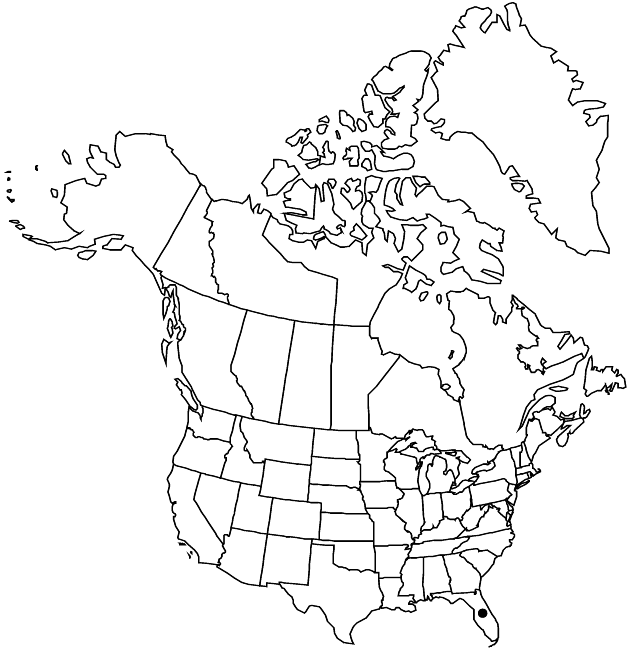Difference between revisions of "Cosmos caudatus"
in A. von Humboldt et al., Nov. Gen. Sp. 4(fol.): 188. 1818.
4(qto.): 240. 1820.
FNA>Volume Importer |
FNA>Volume Importer |
(No difference)
| |
Revision as of 18:48, 24 September 2019
Plants 30–250 cm, glabrous or sparsely hispid. Leaves: petioles 1–7 cm; blades 10–20 cm, ultimate lobes 2–10 mm wide, margins spinulose-ciliate, apices acute, often mucronulate. Peduncles 10–30 cm. Calyculi of usually spreading, linear-subulate bractlets 6–10 mm, apices acuminate. Involucres 5–15 mm diam. Phyllaries erect, oblong-lanceolate, 7–11 mm, apices acute to obtuse. Ray corollas rose-pink to purple, laminae oblong-oblanceolate, 5–15 mm, apices obtusely 3-lobed. Disc corollas 5–6 mm. Cypselae 12–35 mm, glabrous or scabridulous proximally, setose distally; pappi of 2–3 widely divergent to reflexed awns 3–5 mm. 2n = 48.
Phenology: Flowering summer–fall.
Habitat: Disturbed sites
Elevation: 0–10 m
Distribution

Fla., Mexico, West Indies, Central America, South America, also introduced in Asia, Pacific Islands.
Discussion
Within the flora area, Cosmos caudatus is found only in the Florida Keys.